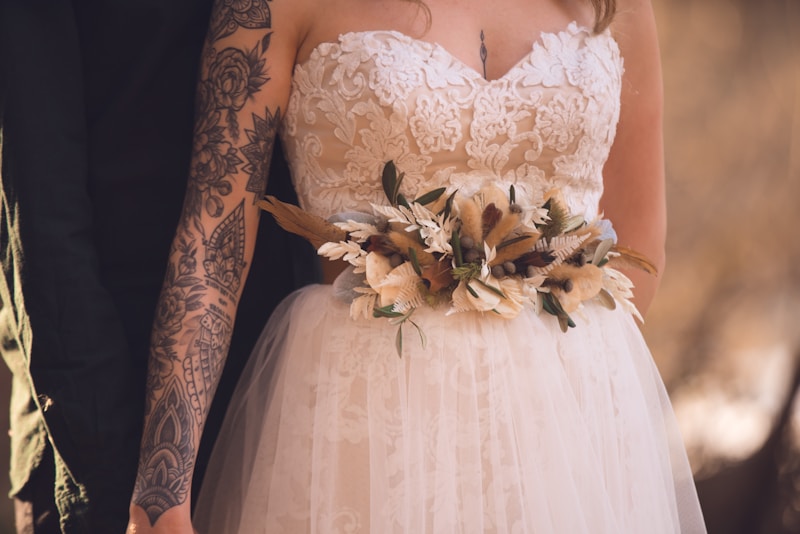Prioritizing Your Wedding Dress Budget: A Comprehensive Guide
Prioritizing Your Wedding Dress Budget: A Comprehensive Guide
Planning a wedding can be both exciting and overwhelming, especially when it comes to budgeting for important items like your wedding dress. In this article, we will explore effective strategies for prioritizing your wedding dress budget, helping you make informed decisions while ensuring you get the dress of your dreams. We'll cover tips on budgeting, creative alternatives, and additional expenses to consider, making your wedding dress shopping experience as enjoyable as possible.
Understanding the Importance of Your Wedding Dress Budget
Your wedding dress is one of the most significant purchases you'll make during your wedding planning journey. It symbolizes your love and style, and the right dress can help you feel beautiful on your special day. However, as with any major purchase, setting a budget is crucial.
Setting a Realistic Budget
Before diving into the world of wedding dresses, it’s important to determine a realistic budget. Consider the following steps:
- Assess Your Overall Wedding Budget: Understand how much you are willing to spend on your entire wedding and allocate a portion specifically for your dress.
- Research Average Costs: Wedding dress prices can vary significantly based on designer, fabric, and location. Research the average cost of wedding dresses in your area, for example, expect to spend between $1,200 and $3,500 in the United States.
- Factor in Additional Costs: Remember to account for alterations, accessories, and cleaning. Alterations can add anywhere from $100 to $600, depending on the adjustments needed.
| Wedding Dress Cost Breakdown | |
| Item | Estimated Cost |
| Wedding Dress | $1,200 - $3,500 |
| Alterations | $100 - $600 |
| Accessories | $200 - $600 |
| Cleaning | $150 - $300 |
Creative Ways to Save on Your Wedding Dress
Saving money on your wedding dress doesn't mean compromising on style. Here are some creative ways to stay within budget:
Consider Pre-Loved or Sample Dresses
Many brides sell their wedding dresses after the big day. Look for local bridal boutiques or online platforms where you can find pre-loved dresses at a fraction of the original price. Sample dresses from bridal boutiques can also be discounted significantly, allowing you to snag a designer gown without the hefty price tag.

Choose a Simple Design
Opting for a dress with a simpler design will not only help reduce costs but also allow you to customize it with accessories. A plain gown can serve as a blank canvas for your unique style.
Shop During Off-Peak Seasons
Consider shopping for your wedding dress during the off-peak bridal shopping seasons. Stores often offer discounts or incentives during slower months to boost sales. For example, January and February are typically less busy for bridal boutiques.
Utilize Online Resources
Explore online retailers that offer trendy wedding dresses at lower prices. Websites like ASOS, Lulus, and even Etsy can provide stylish options that won’t break the bank.
Incorporating Your Personal Style
Your wedding dress should reflect your personal style. Here are some tips:
Determine Your Style Preferences
Think about the overall theme of your wedding and what styles resonate with you. Are you leaning towards a bohemian, vintage, or modern aesthetic? Having a clear vision will help narrow down your choices.
Trial and Error
Don’t shy away from trying different styles and cuts during dress fittings. You might be surprised by what looks best on you, helping you make a more informed purchase.
Final Considerations: Prioritizing Your Budget
As you navigate your wedding dress shopping journey, keep the following considerations in mind:
Stick to Your Budget
It’s easy to get swept away in the excitement of finding “the one.” However, staying within your budget is essential to prevent financial stress later.
Allocate Funds for Other Wedding Necessities
Ensure that your wedding dress expenses don’t overshadow your budget for other essential items like venue, catering, and photography. A balanced budget plan will lead to a smoother wedding planning experience.
Communicate with Your Partner
Discuss your budget and dress preferences with your partner. Having their input not only eases the decision-making process but also fosters a sense of teamwork in the wedding planning journey.
Conclusion
Prioritizing your wedding dress budget is a crucial step in the wedding planning process. By setting a realistic budget, considering creative alternatives, and incorporating your personal style, you can find a beautiful dress without overspending. Remember to evaluate your other wedding expenses and communicate openly with your partner to ensure a joyous and stress-free wedding planning experience. Ultimately, the right dress will enhance your special day and allow you to shine with confidence and joy.
As you embark on this journey, keep in mind that it’s not solely about the dress but the memories you create. Happy wedding planning!
